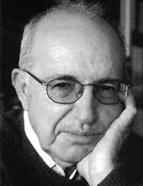

The unfairness of this measure was evident when, by the time he was released on probation in May 1962, he had served more than double his original sentence. In 1959, while still in prison, he married Isaura Silva, whom he had met a decade earlier through their involvement in the MUDJ.
Borges Coelho served his sentence at Peniche fort, where he was placed in Pavilion C on the top floor, where prisoners considered more politically dangerous were held. It was there that he met Álvaro Cunhal and other communist leaders. Under a particularly harsh prison regime, they made the most of their one hour of permitted daily interaction, a time when prisoners were also allowed to read newspapers. Additionally, and with certain restrictions, the prison administration allowed books to be brought in, though only one at a time.
Towards the end of 1957, Borges Coelho rekindled his passion for history. He read Fernão Lopes' chronicles, particularly the one about King John I, prefaced by António Sérgio; História da Administração Pública em Portugal dos séculos XII a XV [History of Public Administration in Portugal from the 12th to the 15th Centuries ], by Henrique Gama Barros; História da Sociedade Portuguesa no século XV [History of Portuguese Society in the 15th Century], by António Costa Lobo or Descobrimentos Portugueses [Portuguese Discoveries] . Documentos para a sua História [Documents of Portuguese History] by Silva Marques. He took copious notes and shared books with other prisoners, sparking debates. Álvaro Cunhal, for example, transferred from solitary confinement in the Lisbon Penitentiary, brought with him the manuscript of As Lutas de Classes em Portugal nos fins da Idade Média [Class Struggles in Portugal at the End of the Middle Ages], which Borges Coelho had read and discussed, profoundly influencing him. Despite the harsh conditions, his interest in history grew ever deeper, leading to the formation of a sort of history study group within the prison.
